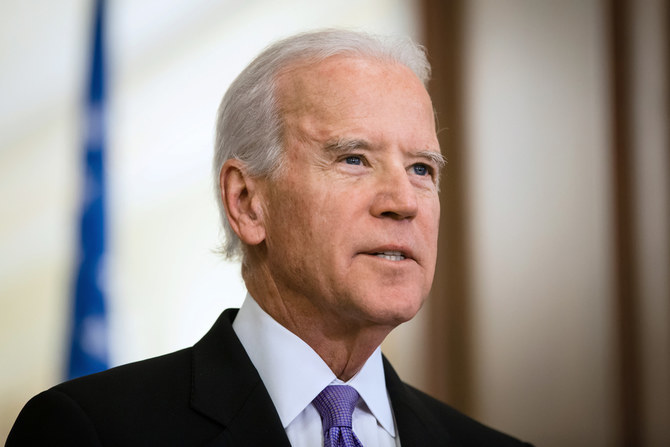
Recent polls show new lows in Americans’ views of President Joe Biden’s foreign policy, raising questions about the administration’s efforts abroad and the potential impact on the 2024 presidential election.
Biden has long prided himself on his foreign policy credentials, which were an important part of his previous presidential campaign. He played a significant foreign policy role as vice president during Barack Obama’s presidency. As a senator, Biden spent 12 years in a leading role on the Senate Foreign Relations Committee and he was involved in various foreign policy issues during his long tenure in the US Senate.
Today, however, many Americans view his foreign policy performance unfavorably. A November Gallup poll found that 66 percent of American adults disapproved of Biden’s overall performance in foreign affairs, 58 percent disapproved of his approach to the war in Ukraine and 64 percent disapproved of his handling of the recent Israeli-Palestinian crisis. These numbers represent a notable decline in views of Biden’s performance from earlier this year and a huge drop compared to the start of his presidency, when a majority of Americans approved of his foreign policy.
Similarly, a November NBC News poll found that 62 percent of voters disapproved of Biden’s management of foreign policy — down eight points from a September poll. The NBC poll found that 56 percent of voters disapproved of his approach toward the Israel-Hamas war.
Partisanship plays a major role — perhaps the biggest role — in determining Americans’ views of Biden’s foreign policy. In the Gallup poll, only 32 percent of Americans approved of Biden’s foreign policy, but 68 percent of Democrats approved. In comparison, 28 percent of independents and 4 percent of Republicans approved.
Partisan divides also are clear on today’s two leading foreign policy issues. On the war in Ukraine, 78 percent of Democrats approved of Biden’s approach, compared to 31 percent of independents and 11 percent of Republicans. On the Israeli-Palestinian crisis, 60 percent of Democrats supported Biden’s approach, compared to 25 percent of independents and 16 percent of Republicans.
Partisanship plays a major role — perhaps the biggest role — in determining Americans’ views of Biden’s foreign policy
Americans’ views of how Biden is responding to the war between Israel and Hamas is particularly interesting, in terms of partisan perspectives. Republicans express stronger support for Israel than any other partisan group, but only 16 percent of Republicans in the Gallup poll approved of Biden’s approach, which has been very supportive of Israel. The fact that many strongly pro-Israel Republicans disapprove of Biden’s strongly pro-Israel policy demonstrates the impact of partisan identity.
Within the Democratic Party, a debate is raging over views of Israel and the Palestinians, often breaking down along generational lines. In the Gallup and NBC polls, Democrats are still more likely than independents or Republicans to express support for Biden’s approach to the war. At the same time, however, Democrats are more likely to express concern over Israel’s actions in Gaza and opposition to unconditional US support for Israel.
For example, the NBC poll found that 47 percent of American voters believed that Israel’s actions in Gaza are justified, but 51 percent of Democratic voters said that Israel had gone too far. The same poll found that 55 percent of voters supported sending military aid to Israel, but 49 percent of Democratic voters opposed doing so.
Partisan identity plays a major role in how Democrats and Republicans view Biden’s foreign policy, but specific issues matter too. Democrats are very likely to support Biden’s emphasis on strengthening alliances, assisting Ukraine and working with other countries to address climate change. By contrast, Republicans are more likely to favor unilateralism, question helping Ukraine and deprioritize climate change. Beyond partisanship, it is logical that Democrats generally support Biden’s foreign policy while Republicans strongly oppose it.
However, recent polls have shown that Biden’s strong support for Israel in the face of almost 20,000 Palestinian deaths in Gaza (so far) and extreme suffering in Gaza has significantly eroded Democratic support for his foreign policy. This is particularly true among younger Democrats; for example, the NBC poll found that 70 percent of voters between the ages of 18 and 34 disapproved of how Biden is responding to the war.
Unfavorable views of Biden’s foreign policy among the general public and declining favorability rates among Democrats are not trends that Biden’s reelection campaign wants to see. Foreign policy is supposed to be one of Biden’s greatest strengths. However, with the Gallup poll showing approval for his foreign policy (32 percent) running even lower than his already troubling overall approval rate (37 percent), foreign policy is not currently boosting Biden’s image among the American public.
Polls have shown that Biden’s strong support for Israel has significantly eroded Democratic support for his foreign policy
The presidential election, however, is nearly a year away. Much can and will change in that time. It is unclear what the war in Ukraine or the situation in Gaza and the West Bank will look like by the fall of 2024. New foreign policy crises are likely to emerge in the meantime, offering Biden opportunities to gain or lose standing among voters.
Much will also depend on who is running against Biden, including the Republican nominee and third-party contenders. Biden’s support for Israel has damaged support for him among Democrats, but those who care about Palestinian suffering and rights are unlikely to support former President Donald Trump, who is aggressively pro-Israel and anti-Palestinian. If a rematch between Biden and Trump occurs, partisanship is likely to play a far stronger role than foreign policy in shaping the election’s outcome.
Kerry Boyd Anderson is a professional analyst of international security issues and Middle East political and business risk. X: @KBAresearch












